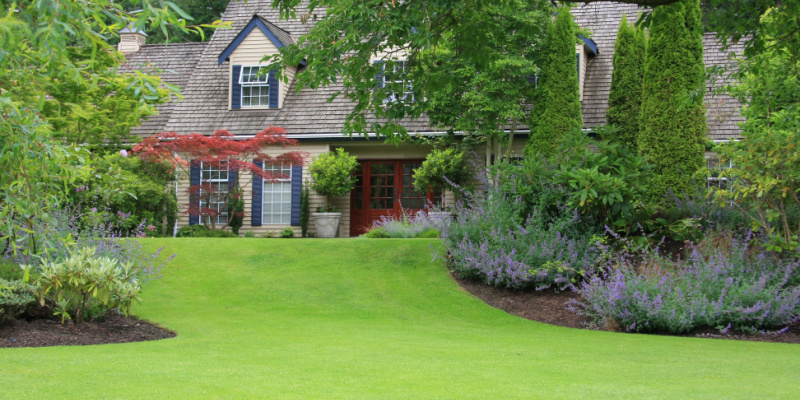Grub infestations can be a significant challenge for homeowners in Canal Winchester, Ohio. These lawn pests, which are the larvae of various beetles, can cause extensive damage to your grass by feeding on the roots. Understanding how to effectively control and prevent grubs is essential for maintaining a healthy and attractive lawn. This comprehensive guide provides essential tips and strategies for managing grubs in your yard.
Understanding Grubs in Your Lawn
Grubs are the immature stage of different beetles, including the Japanese beetle, June beetle, and European chafer. These small, C-shaped larvae feed on the roots of grass, leading to yellowing, wilting, and eventually the death of the grass. They are most active and damaging during the late summer and early fall.
Signs of Grub Infestation
Recognizing a grub infestation early is key to minimizing damage:
1. Brown, Patchy Grass:
This is often the first sign of grub activity.
2. Spongy Turf:
As grubs devour grass roots, the turf may feel spongy and can be easily lifted.
3. Increased Bird Activity:
Birds may feed on the grubs, causing additional lawn damage.
Grub Life Cycle
Understanding the grub life cycle helps in timing control measures effectively:
- Summer:
Beetles lay eggs in the soil.
- Late Summer to Early Fall:
Eggs hatch into grubs, which feed on grass roots.
- Winter:
Grubs burrow deeper into the soil to overwinter.
- Spring:
Grubs return to the surface to feed before maturing into beetles.
Preventive Measures
Maintain Lawn Health
A healthy lawn is less susceptible to grub infestations:
- Water Properly: Water deeply but infrequently to encourage strong root growth.
- Regular Mowing: Keep your grass at an optimal height.
- Fertilize Appropriately: Use the right type and amount of fertilizer for your lawn.
Cultural Practices
Modifying your lawn care practices can deter grubs:
- Aeration: Aerating your lawn improves soil health and reduces grub-friendly environments.
- Dethatching: Remove thatch to decrease the habitat for grubs and beetles.
Grub Control Strategies
Chemical Treatments
Insecticides can be effective in controlling grubs:
- Timing: Apply in late summer or early fall, when grubs are small and most vulnerable.
- Products: Look for products containing imidacloprid, thiamethoxam, or chlorantraniliprole.
- Application: Follow label instructions for safe and effective use.
Natural and Organic Options
For those preferring eco-friendly solutions:
- Beneficial Nematodes: These natural predators attack and kill grubs.
- Milky Spore Disease: This bacterium specifically targets Japanese beetle grubs.
When to Apply Grub Control Products
The best time for treatment depends on the product:
- Preventive Products:
Apply in early summer before eggs hatch.
- Curative Products:
Use in late summer or early fall when young grubs are active.
Monitoring Your Lawn
Regular inspection is crucial:
- Check for Grubs:
Dig up small sections of turf to look for grubs.
- Monitor Lawn Health:
Watch for early signs of distress in your grass.
Professional Grub Control Services
Professional services offer several advantages:
1. Expertise:
Professionals have the knowledge to accurately identify and treat grub infestations.
2. Effective Treatments:
They have access to professional-grade products.
3. Convenience:
Saves you time and effort in dealing with the problem.
Integrated Pest Management (IPM)
IPM involves using a combination of methods to manage pests:
- Inspection and Monitoring:
Regular checks to identify problems early.
- Cultural Controls:
Practices like proper mowing and watering.
- Biological Controls:
Using natural predators or organisms.
- Chemical Controls:
Applied as a last resort and in a targeted manner.
Grub control and prevention in Canal Winchester require a multifaceted approach. By maintaining a healthy lawn, implementing cultural practices, and applying appropriate treatments at the right time, you can effectively manage grub populations. Regular monitoring and early intervention are key to preventing significant damage. For those seeking assistance, professional lawn care services can provide the expertise and treatment necessary to keep your lawn healthy and grub-free. Remember, a proactive approach to lawn care is the best defense against these common lawn pests.

